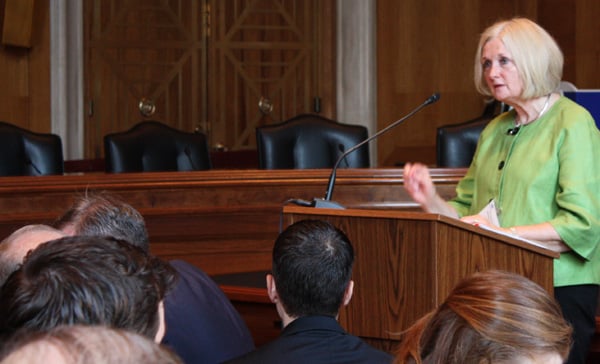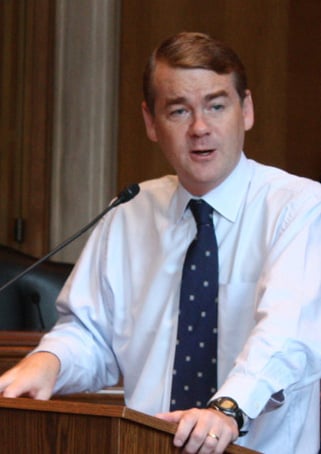Public Policy and Government Affairs
Creedon, Wolf, Bennet Discuss Export Control Reform
Written by: developer
 Assistant Secretary of Defense for Global Strategic Affairs the Honorable Madelyn Creedon (pictured, right), Assistant Secretary of Commerce for Export Administration Kevin Wolf and Senator Michael Bennet (D-CO) spoke about the status of export control reform at a Space Foundation-sponsored briefing breakfast on July 24. The audience comprised congressional staff from both the Senate and the House, industry executives, executive branch officials and international space representatives.
Assistant Secretary of Defense for Global Strategic Affairs the Honorable Madelyn Creedon (pictured, right), Assistant Secretary of Commerce for Export Administration Kevin Wolf and Senator Michael Bennet (D-CO) spoke about the status of export control reform at a Space Foundation-sponsored briefing breakfast on July 24. The audience comprised congressional staff from both the Senate and the House, industry executives, executive branch officials and international space representatives.
“With the House already having passed an export control reform package in its version of the Defense Authorization bill, we felt it would be timely and relevant to bring this topic up in a forum for the Senate side,” said Space Foundation Vice President – Washington Operations Brendan Curry. “The ball is in their court to act now.”
 Saying that there still is a small chance that something will get passed this year, Creedon and Wolf (pictured, right) focused on several key points:
Saying that there still is a small chance that something will get passed this year, Creedon and Wolf (pictured, right) focused on several key points:
- The bill ensures that items will still be regulated and Department of Defense (DoD) will still have a role in ensuring the truly sensitive items will remain protected.
- The Administration sees these modernization efforts as way to keep the U.S. industrial base healthy while allowing it to compete overseas.
- Satellites and related components will be normalized, but the bill gives flexibility in how controls are considered.
- Partnerships with allies are key, including developing more joint systems; the reforms will enable the U.S. to export more to allies on joint programs.
- Allied nations will still have to provide compliance certification the U.S. government, including that end-users are able to receive exports.
- Nations that are still subject to arms embargoes would still be precluded from receiving exports.
 Bennet (pictured, left) talked about three reform areas that need attention:
Bennet (pictured, left) talked about three reform areas that need attention:
- Education so that America’s future workers can compete for 21st century high-tech jobs
- Immigration to enable talented immigrants who are educated here to have an opportunity to stay in the U.S.
- Export control to help high-tech U.S. companies to remain competitive
This article is part of Space Watch: August 2012 (Volume: 11, Issue: 8).
